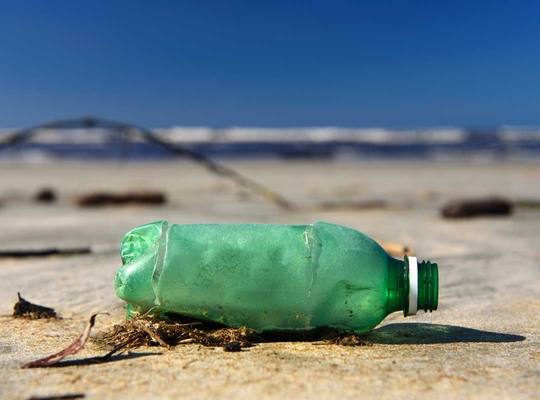You are here
Plastic litter has no place in a sustainable Europe

On Wednesday, the European Parliament approved a new series of measures to keep litter out of our seas and oceans. Member of the European Parliament Mark Demesmaeker co-negotiated the measures and responds with satisfaction: “Last weekend, a clean-up action was held on our Flemish coast for the tenth time. Over 7,000 volunteers picked up no fewer than 11.5 tonnes of waste. Twice as much plastic as last year. More than 80% of the litter that is found on our beaches consists of plastic, and about half of this comes from disposable products. Without action, there will be more plastic than fish in our seas by 2050. We have to change course. These ambitious measures are intended to ensure that.”
Important step forward
Europe will ban several disposable plastic products for which sustainable and affordable alternatives already exist, such as plastic cutlery and plates. Member states must also seek to achieve a reduced consumption of single-use plastic food containers and plastic drinking cups. In addition, improved product design, labelling and awareness-raising campaigns will contribute to the prevention of litter. It is also essential that producers must help pay for the disposal of that litter from now on. “This is undeniably an important step forward. In Flanders, producers already contribute to the fight against litter, for example through Mooimakers awareness campaigns. Europe is going even further and ensuring a structural and cost-efficient solution,” says MEP Mark Demesmaeker.
Raising the bar
Another highlight is that member states will have to collect 90% of single-use plastic beverage bottles separately by 2029. “This measure is sure to have a great impact, also in terms of reducing CO2. Every tonne of plastic that we recycle is the equivalent of taking one car off the road. Plastic beverage bottles are the most commonly found disposable plastic on our beaches. Furthermore, the European Parliament succeeded in convincing the member states that all beverage bottles will have to consist of 30% recycled plastic by 2030. In fact, Flanders is already setting the bar higher with a recycling goal for beverage packaging of 90% by 2022 and a goal of 50% recycled plastic for PET bottles by 2025,” Mark Demesmaeker explains.
Fight against cigarette filters
Europe is also resolutely taking up the fight against plastic cigarette filters, the second most commonly found plastic disposable product. Mark Demesmaeker emphasises the importance of this: “A plastic cigarette butt does not degrade and a single butt can pollute up to 500 litres of water. Producers of tobacco filters with plastic must contribute to the clean-up costs and to the public infrastructure necessary to collect these cigarette butts. Apart from that there will be, in addition to the existing health warnings, an environmental warning on the packaging of tobacco products with plastic.”

